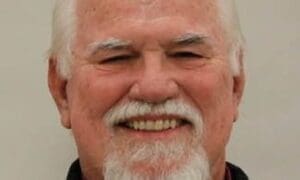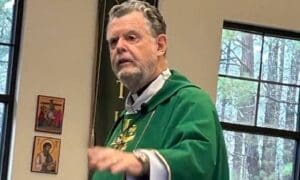Where were you when the snow starting falling and the roads began to be covered with ice? I was at a pastor’s lunch. When I entered the restaurant at noon, some flakes were beginning to fall. When I left shortly after one o’clock, Whoa!
You know the story. People were caught unprepared. Even though a winter storm warning was issued early that morning, the initial models showed the bulk of the storm would hit south of Atlanta. But Mother Nature had a different idea. She hit Atlanta with a vengeance, and everybody left for home at the same time.
Before Snowjam 2014 unjammed, cars were abandoned, people were stuck on interstates without essentials, kids were stuck on buses that could not finish their route, many students and staff spent the night at school, and Atlanta was paralyzed.
Snowjam brought out the best in human nature. People living near the interstates walked through frigid conditions to offer food and drink to stranded motorists. People took in strangers and gave them a place to crash. A Sandy Springs police officer helped deliver a baby. People with four-wheel drives offered assistance.
My daughter stayed with five students whose parents could not pick them up. Finally, a parent who had already taken his own kids home came back to school in his four-wheel drive, took the remaining students home, then took the staff home, including my daughter, who lived 35 minutes away.
Along the way, the parent helped a lady whose car was in a ditch and then stopped again to pick up a pedestrian who said he’d been walking for three hours trying to get home.
The dark side of human nature also appeared. Cars were broken into. A guy stole a tow truck so he could steal abandoned cars. And, of course, there was blame.
As frustration escalated, people started Monday morning quarterbacking and looked for a scapegoat. Why didn’t superintendents call off school? Why didn’t GDOT treat the roads earlier? Why didn’t GEMA sound the alarm? Who’s responsible for this lack of preparation?
Then the media turned on the heat. Part of their job is to hold leaders accountable, but their timing stunk. In the middle of the storm, the governor’s priority was to get people off the roads and safely home. But the media was out for blood. And the general population began to chime in.
We like to play the blame game. Blaming is as old as the garden of Eden. God had one simple little rule and Adam and Eve could not keep it. And when God confronted their disobedience, Adam blamed God for eating from the tree that was forbidden.
“This woman whom You gave to be with me, she gave me of the tree.” Then Eve blamed the serpent, and we’ve been throwing blame around ever since.
I’m not a psychologist, nor did I stay in a Holiday Inn Express last night, but those in the know point out that often we blame others when we should be looking in the mirror at ourselves.
Sometimes others are at fault, but sometimes we don’t want to see the same negative trait or poor result in our own lives, so we point it out in other’s lives. Blaming others makes us feel better when we’re in a helpless situation, like being stuck on an interstate for 27 hours.
Peter Bregman wrote, “Blaming others is a poor strategy. Not simply because everyone can see through it … or because it destroys relationships. Or because, while trying to preserve our self-esteem, it actually weakens it. There’s a more essential reason why blame is a bad idea: Blame prevents learning.
“If something isn’t your fault, then there’s no reason for you to do anything differently. Which means, in all probability, you’ll make the same mistake in the future.” (Bregman, www.psychologytoday, “How We Work”).
Rather than scapegoat, the most productive approach to Snowjam 2014 is to pinpoint the failures and communication breakdowns that put metro Atlanta in this predicament, and put a strategy together that will keep this from happening again. Problem solving is more productive than blaming. But that’s not as fun as pointing the finger, is it?
[Dr. David L. Chancey is pastor of McDonough Road Baptist Church, Fayetteville, Georgia. The church family gathers at 352 McDonough Road, just past the department of driver’s services building, and invites you to join them this Sunday for Bible study at 9:45 and worship at 10:55 a.m. Visit them on the web at www.mcdonoughroad.org and “like” them on Facebook.]











Leave a Comment
You must be logged in to post a comment.